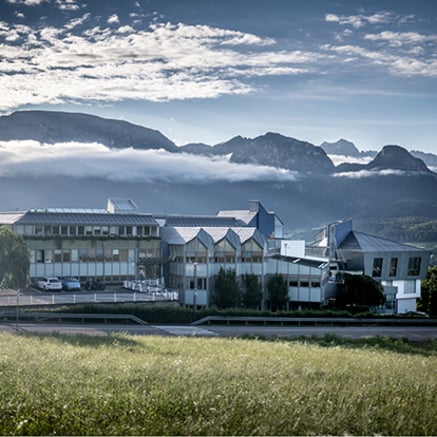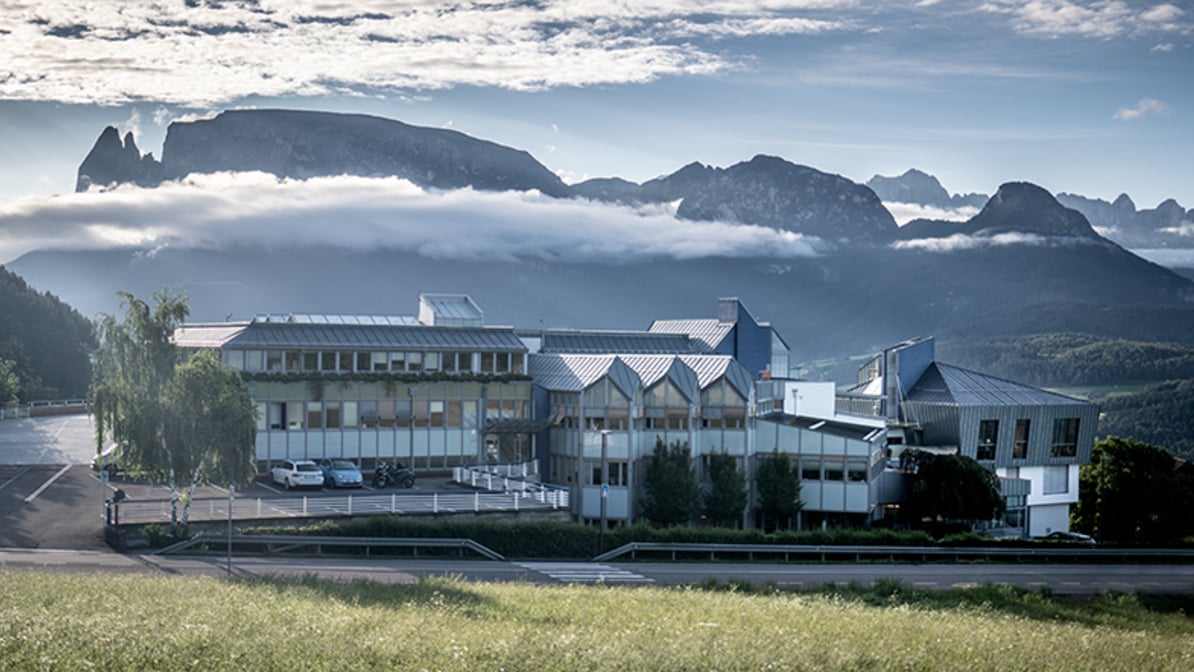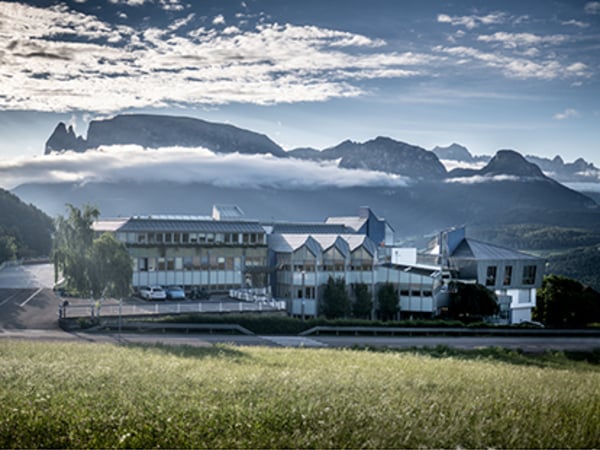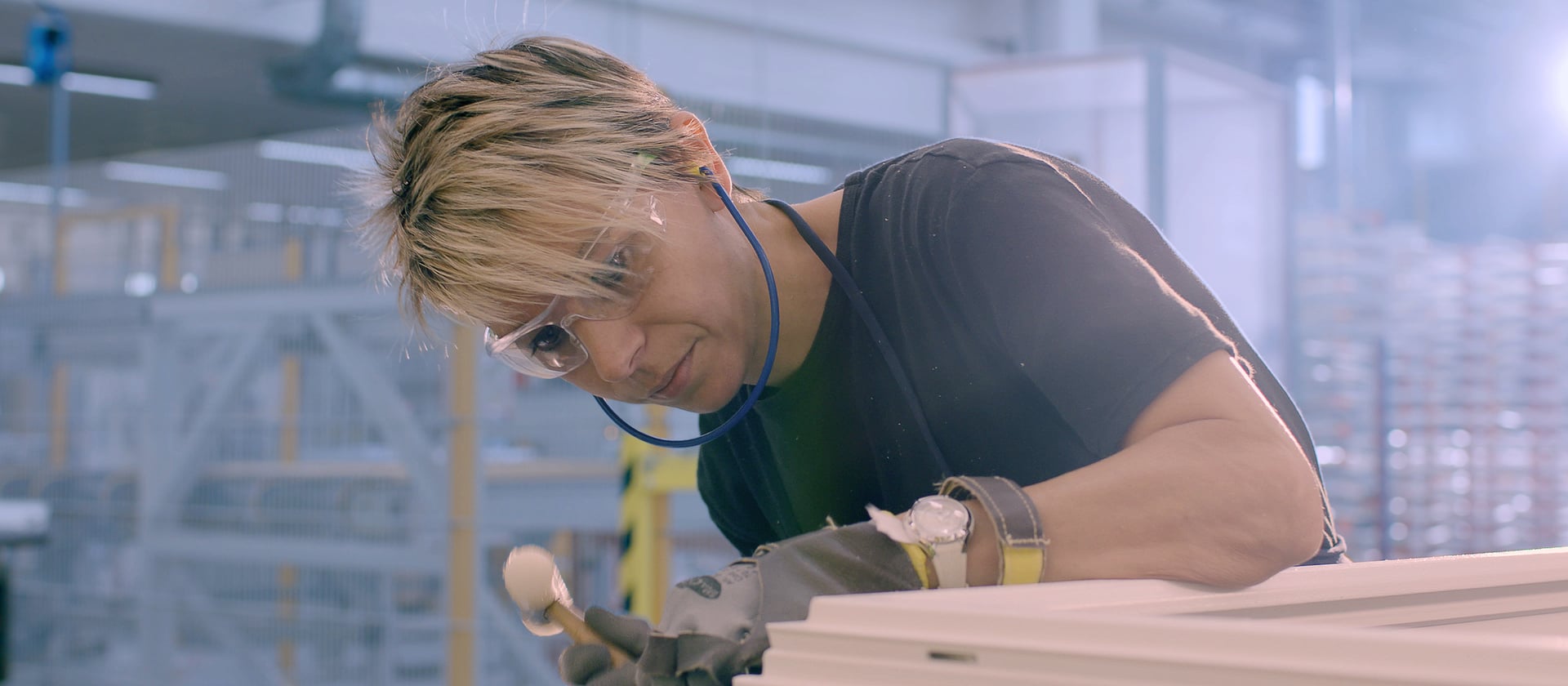
“We’re building one of the most sustainable windows ever made.”
Managing Director Joachim Oberrauch: consistency
Modern windows play a key role in the energy consumption of buildings. But a truly sustainable product requires more than just a good insulation value. This is why Finstral, a family-owned company, has from the outset differed considerably from the market in its approach. An interview with Managing Director Joachim Oberrauch
What does sustainability mean for a window manufacturer like Finstral?Joachim Oberrauch: In order to be able to run our business sustainably, we have to look at the entire system. We at Finstral think in terms of cycles. We are not only concerned with building perfect windows, but also producing them as sustainably as possible. This means, for example, that environmentally-friendly disposal is a part of our thinking from the very outset. That’s why we do almost everything ourselves, from the initial idea through to installation. This is the only way we can ensure that the entire production cycle will save materials and energy.
Those who do everything themselves can set and guarantee their own quality standards…Exactly. This is a great advantage, especially for windows, because they consist of many different parts. Finstral is one of the few window manufacturers in Europe where you can get everything from one source. We develop the framework profiles. We mix the uPVC according to our own recipe and extrude it ourselves. Wood production – beginning with the board – is also something we do ourselves. We coat aluminium, manufacture insulation glass and assemble the finished window elements. And of course we also carry out the installation. Because we do everything ourselves, we have created the ideal conditions for building one of the most sustainable and durable windows ever.
Finstral windows are developed in a modular way – how does this contribute to sustainability?Instead of using industry standard components, we design almost all individual parts in-house. This means that they all match perfectly. In this way, we can constantly improve our windows and at the same time produce them using fewer materials and less energy. For example, our frame profiles are designed so that all materials can be separated with little effort according to type. This makes them 100 percent recyclable. Another advantage is that Finstral profiles are slimmer than most others. This is made possible because, as a matter of principle, we bond the glass to the frame to form a stable unit – instead of using setting blocks as is usual. This means that the frame does not have to hold the glass and can be made slimmer. This looks more elegant and at the same time saves two thirds of the steel inserts that we previously had to insert into all our uPVC profiles. The extremely high modularity of our system also has great benefits for our customers, because it allows them to assemble their windows to match their individual needs.
Can window installation also be made as resource-saving as possible?Yes, installation too offers plenty of potential for this. In Europe, windows are still usually mounted directly onto the masonry. With more modern methods, installation costs can be considerably reduced – and Finstral is a pioneer in this field. For example, with slide-on installation when refurbishing old wooden windows. It is twice as fast as conventional methods and also saves resources, because there is no need to damage the existing masonry. Finstral has also introduced the slide-in assembly process for the refurbishment of old uPVC or aluminium windows. This allows windows to be replaced in as little as 30 minutes. As the works are only carried out from the inside, costs are radically reduced: no scaffolding, no painting or masonry work, and the premises do not have to be vacated. For new builds Finstral uses mounting frames. These are installed during the wet construction phase. This prevents the windows from being damaged. If the window then has to be replaced after 20-30 years, it can be done in minutes – with no need for masonry work.
How do you manage such constant development in the area of sustainability?We regularly review all of our processes within the framework of ISO certifications: from quality and environmental management through to energy consumption and occupational safety. There is great potential for optimisation. In 2018 we were able to significantly reduce our resource requirements once again and, since then, we have been using 4.5 percent less uPVC and 5 percent less raw glass in the production of each window.
What does sustainability mean for a window manufacturer like Finstral?Joachim Oberrauch: In order to be able to run our business sustainably, we have to look at the entire system. We at Finstral think in terms of cycles. We are not only concerned with building perfect windows, but also producing them as sustainably as possible. This means, for example, that environmentally-friendly disposal is a part of our thinking from the very outset. That’s why we do almost everything ourselves, from the initial idea through to installation. This is the only way we can ensure that the entire production cycle will save materials and energy.
Those who do everything themselves can set and guarantee their own quality standards…Exactly. This is a great advantage, especially for windows, because they consist of many different parts. Finstral is one of the few window manufacturers in Europe where you can get everything from one source. We develop the framework profiles. We mix the uPVC according to our own recipe and extrude it ourselves. Wood production – beginning with the board – is also something we do ourselves. We coat aluminium, manufacture insulation glass and assemble the finished window elements. And of course we also carry out the installation. Because we do everything ourselves, we have created the ideal conditions for building one of the most sustainable and durable windows ever.
Finstral windows are developed in a modular way – how does this contribute to sustainability?Instead of using industry standard components, we design almost all individual parts in-house. This means that they all match perfectly. In this way, we can constantly improve our windows and at the same time produce them using fewer materials and less energy. For example, our frame profiles are designed so that all materials can be separated with little effort according to type. This makes them 100 percent recyclable. Another advantage is that Finstral profiles are slimmer than most others. This is made possible because, as a matter of principle, we bond the glass to the frame to form a stable unit – instead of using setting blocks as is usual. This means that the frame does not have to hold the glass and can be made slimmer. This looks more elegant and at the same time saves two thirds of the steel inserts that we previously had to insert into all our uPVC profiles. The extremely high modularity of our system also has great benefits for our customers, because it allows them to assemble their windows to match their individual needs.
Can window installation also be made as resource-saving as possible?Yes, installation too offers plenty of potential for this. In Europe, windows are still usually mounted directly onto the masonry. With more modern methods, installation costs can be considerably reduced – and Finstral is a pioneer in this field. For example, with slide-on installation when refurbishing old wooden windows. It is twice as fast as conventional methods and also saves resources, because there is no need to damage the existing masonry. Finstral has also introduced the slide-in assembly process for the refurbishment of old uPVC or aluminium windows. This allows windows to be replaced in as little as 30 minutes. As the works are only carried out from the inside, costs are radically reduced: no scaffolding, no painting or masonry work, and the premises do not have to be vacated. For new builds Finstral uses mounting frames. These are installed during the wet construction phase. This prevents the windows from being damaged. If the window then has to be replaced after 20-30 years, it can be done in minutes – with no need for masonry work.
How do you manage such constant development in the area of sustainability?We regularly review all of our processes within the framework of ISO certifications: from quality and environmental management through to energy consumption and occupational safety. There is great potential for optimisation. In 2018 we were able to significantly reduce our resource requirements once again and, since then, we have been using 4.5 percent less uPVC and 5 percent less raw glass in the production of each window.
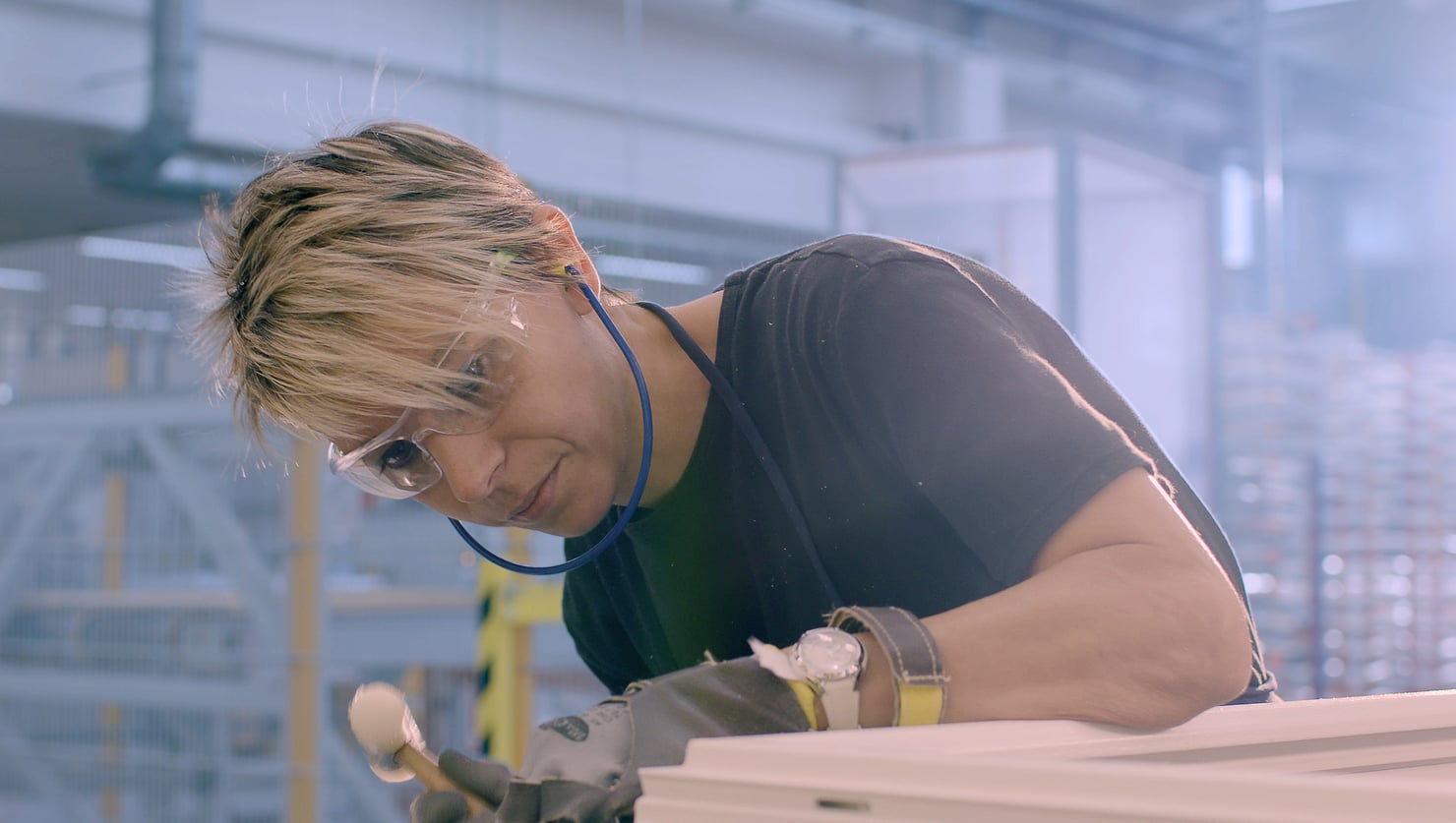
Whether frame or glass: Finstral designs and produces almost all components itself. Sustainability can thus be considered from the very start.
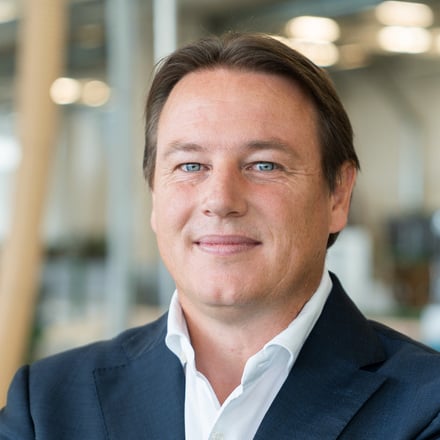
As a second-generation managing director, Joachim Oberrauch benefits from the long-term decisions made by his father and uncle to maintain the highest possible quality standards. That is why Finstral consistently follows this path.
Still want more?
See here for further interesting reading matter.
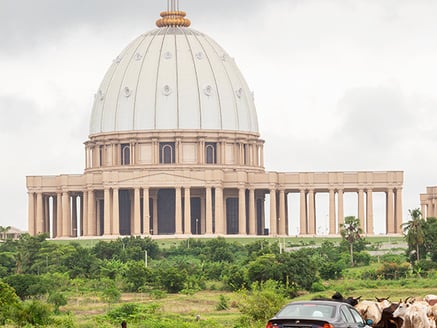

Department of Gestaltungslehre and Design – Technical University of Vienna.
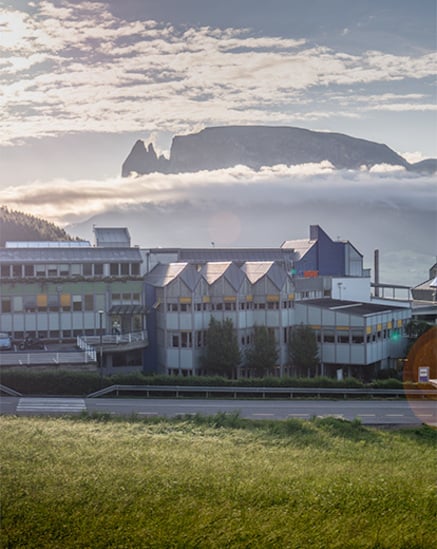
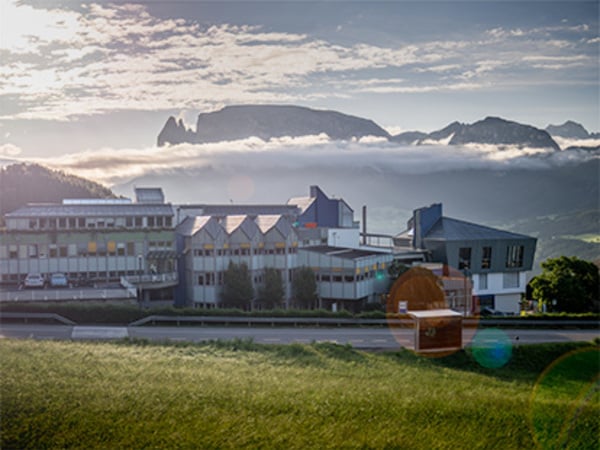
The South-Tyrolean family business is among the biggest window suppliers in Europe.
